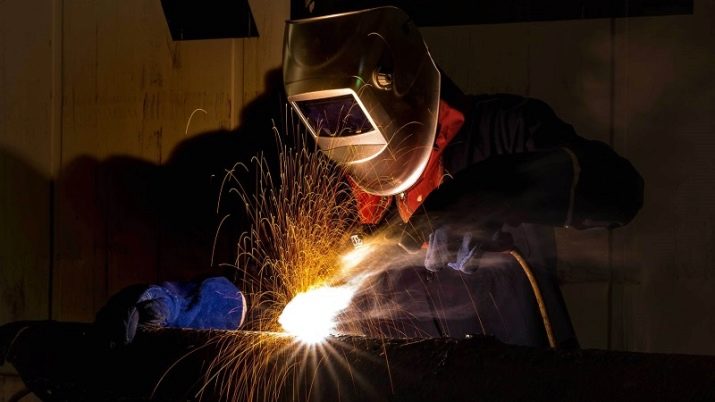Who is a NAKS welder and why is certification needed?
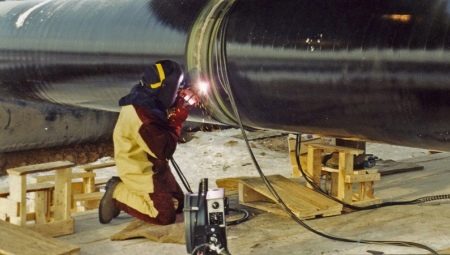
Everyone knows in general terms what a welder does. But it is much less clear who he is welder NAKS... We need to deal with this and find out what certification is needed for.
Peculiarities
In the vacancies published in newspapers and on the Internet, you can often find a mention of NAKS welders. This is "mysterious" the abbreviation stands for “National Welding Inspection Agency” only. Such an organization emerged in the early 1990s. At that moment, the quality of work of many welders fell sharply, and it became necessary to defend the prestige of the profession. This task was successfully solved, and now even the most difficult and responsible tasks are entrusted to NAKS welders.
The agency is not limited to direct attestation (although this is the main task)... It is also busy:
- preparation of regulations;
- the creation of commissions from among experts;
- compilation of teaching aids;
- advising on the correct welding performance;
- assistance in the formation of technical policy at various enterprises.

Levels of certified workers
The basic level is just a NAKS welder. This is a permit to perform critical types of welding and serious work. On the second level there are master welders. Such people are ready to control the conduct of the welding process. They already have the right to indicate whether the operations were performed correctly. Directions are given both orally and in writing. Third step - technologist. Such specialists monitor all welding work and activities at a particular enterprise. But this is not the limit. NAKS singles out more welding engineers. They are the heads of the departments involved in welding.In addition to specific instructions, the welding engineer approves the general documentation required for the job.
Attention: NAKS carries out certification not only of specialists, but also of equipment, tools that can be used in critical work.
Qualification tests are carried out in:
- primary;
- repeated;
- out of order (when there are doubts about the qualifications of a specialist).
It is worth considering that the qualifications of employees are checked not only "at the general level", but also by a specific specialization. So, NAKS NGDO certificate gives the right to engage in welding:
- field and main oil pipelines;
- field and main oil product pipelines;
- gas pipelines, condensate pipelines;
- reservoirs;
- offshore pipelines;
- shut-off valves;
- pumps;
- compressors;
- oil and gas pipes (when they are manufactured or repaired in an industrial environment);
- pipelines of automated gas filling stations.
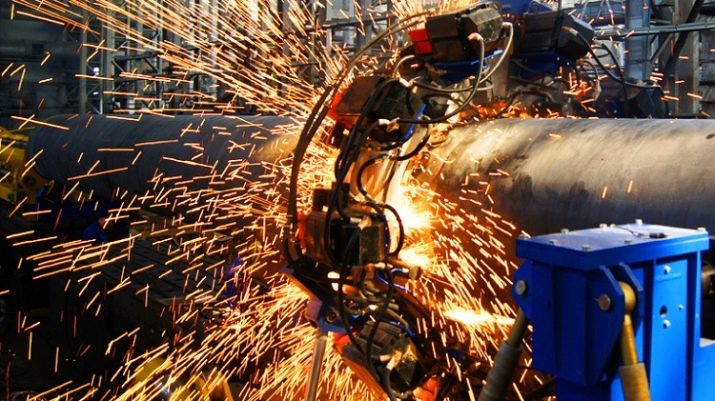
The category of NAKS PTO (that is, lifting and transport equipment) is also quite popular. This includes welding with:
- lifts and hoists;
- cargo and construction cranes;
- pipelayers;
- manipulator cranes;
- various types of escalators;
- equipment of ropeways and their parts;
- towers;
- lifts for construction and repair work;
- with cargo grabs.
The next important group is KO or boiler equipment... This includes all vessels that operate at pressures above 70 kPa. This category also includes steam boilers, steam and "hot" pipelines, where the pressure exceeds 70 kPa, or temperatures above 115 degrees. Welders with a KO certificate also have the right to "weld" fittings, protection and control systems. Finally, they are allowed to work with metal structures on which different types of boilers are placed.
The GO tolerance group, that is, gas equipment, covers:
- internal gas supply complexes;
- fuel equipment for boilers, technological machines and apparatus;
- water heaters;
- burners;
- street underground and overhead gas pipelines (of any pressure, from different materials);
- fittings.
The category OHNVP stands for "equipment of chemistry, petrochemistry, oil refining and fire and explosion hazardous enterprises."
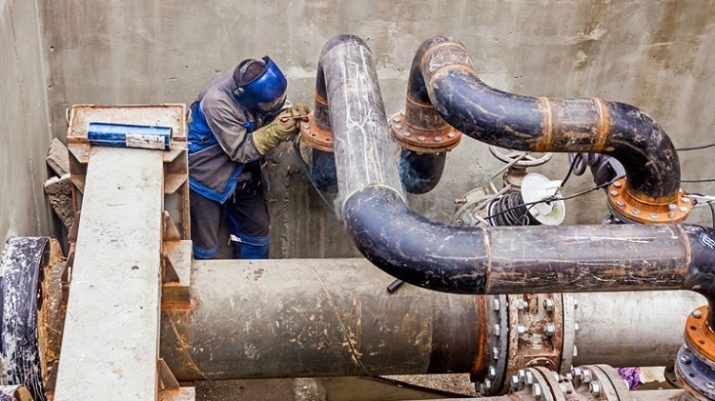
Separate OHNVP less than 16 MPa and more. Separately, the equipment in which vacuum environments are created is highlighted. Also welders with this tolerance can work with:
- tanks where flammable, poisonous and explosive substances are stored;
- cryogenic equipment;
- isothermal devices;
- industrial refrigerators;
- compressors and pumps of particular complexity;
- separators;
- cylinders;
- transport tanks;
- boilers for the disposal of various substances;
- technological pipelines and their individual parts.
Separately, it should be said about welders who are allowed to work. with metallurgical equipment (or abbreviated MO). This includes not only smelting and blast furnaces, but also equipment for casting, pipe rolling plants. Also, welders of NAKS MO have permission to work with:
- crimp;
- sheet-rolling;
- blank mills.
Additionally, there are 3 more categories:
- OTOG (equipment in which dangerous goods are transported);
- SC (structures used in construction);
- KSM (steel bridges).
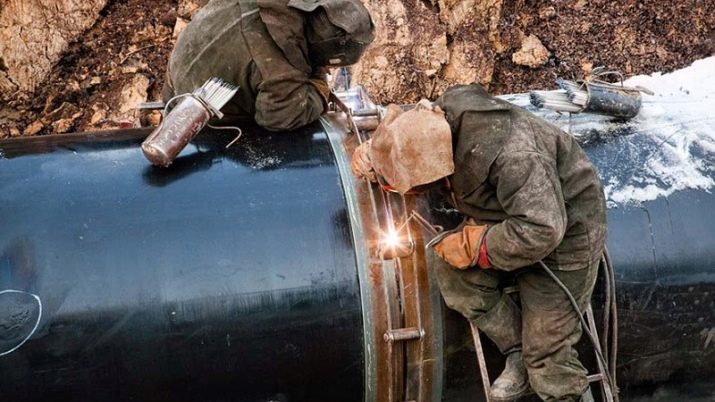
Where can I get a certificate?
It is quite obvious that practically in any branch of industry, transport and energy, welders must obtain a NAKS certificate. Otherwise, they will be forced to limit themselves to single secondary orders. Training should be conducted only in special training centers. Each such center is included in the NAKS register. Passing the exam is possible only upon an individual application.
To this statement you will have to add:
- health certificate;
- documents confirming a certain work experience (usually an extract from a work book);
- safety knowledge assessment protocols;
- documents confirming professional and special training;
- personal photographs for documents.
Myself the exam is divided into theoretical and practical parts... If only one step has failed, the test can be repeated after 30 days. But first, they test their proficiency in practical skills. If it is not confirmed, the admission to the delivery of the "theory" will no longer be given. Engineers and technologists must prove their knowledge of regulations and industry requirements for the issuance of a NAKS certificate. It should be borne in mind that the commission has the right to ask questions not one at a time, but several types of welding process. More often than not, she does this. Therefore, engineers must be aware of all such subtleties.
Important: passing the NAKS exam is mandatory for all welders, and even more so for engineers after a break in work for 6 months or longer. Therefore, before the exam, it is advisable to familiarize yourself with the latest documentation and literature.
The best option to do this is attending courses. They pay special attention to:
- ensuring security;
- tracking the quality of welding;
- the equipment used;
- basic consumables;
- methods of dealing with the identified deviations from the norm in the welding process.

What does a specialist give?
It should be noted right away that not everyone needs to have NAKS documents. BThey may well be dispensed with:
- ordinary specialists, if their employment contract is valid for no more than 24 months;
- part-time workers;
- professionals taking advanced training courses;
- Young professionals;
- employees hired by competition who have been in positions for less than 12 months.
But for everyone else NAKS certificate is strictly required... Management and personnel services are required to check it when applying for a job. Otherwise, the admission of an employee to perform welding work or control them will be illegal. The relevant document must also be presented by employees of the auditing structures who carry out certification of firms. And for an ordinary welder, this is the only opportunity to perform critical work on metal structures. It is necessary to check the identity through the official website of the national association. Search is possible by the name of the employee. The following must also be indicated:
- places of attestation;
- date of this procedure;
- individual document number;
- the period of validity of the certificate (and sometimes also the time when it is permissible to renew the permit).
